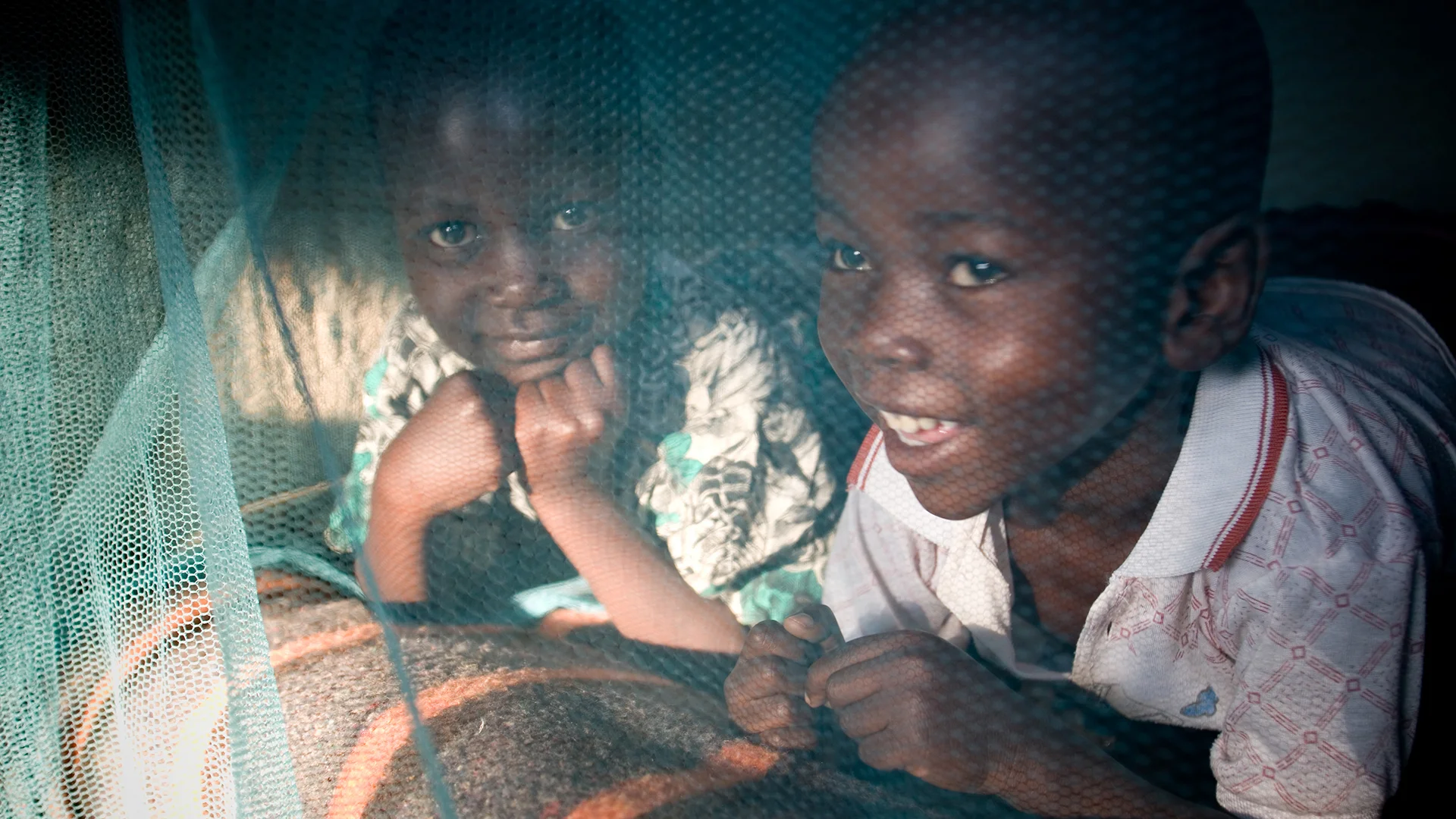Every two minutes, a child dies of malaria. This mosquito-borne disease poses an increased risk to little ones: in many countries, malaria is one of the main causes of high child mortality. Since there is still no vaccine, mosquito nets remain the most effective protection.
The situation
Around half of the world’s population lives with the risk of contracting malaria. 288 million new cases were recorded in 2018 alone, a significant increase compared with the 251 million cases in 2010 and 231 million cases in 2017. Of the 405,000 people who did not survive the disease, 272,000 were girls and boys under the age of five (67 percent). This is because children, as well as people living with HIV and pregnant women, are particularly at risk due to their weakened immune systems.
Malaria is transmitted by the female Anopheles mosquito. The first signs of the disease, which can lead to death within a short period of time, are fever, headache, exhaustion and muscle pain. Even if children survive malaria, the temporary anemia can negatively affect their physical and mental development. The disease also weakens entire economies through the loss of productive workers, gives rise to high healthcare costs and exacerbates poverty.
Most of the deaths occurred in sub-Saharan Africa, where an estimated 24 million children are infected with the deadliest form of malaria. There is no vaccine for malaria, but mosquito nets impregnated with insecticide provide reliable protection. If the disease does break out, promptly administered medication helps in many cases.
Disruptions to central health services caused by the COVID-19 pandemic left millions of children defenseless against malaria, resulting in a significant increase in infections, illnesses and deaths.
How UNICEF helps
UNICEF is committed to the fight against malaria worldwide, focusing with great success on prevention and information.
- The Children’s Fund procures and distributes impregnated mosquito nets and promotes their local production.
- Expectant mothers also receive important medicines.
- UNICEF provides information on healthy nutrition and supplies food supplements, as the regular intake of nutrients such as vitamin A and zinc increases children’s resistance to the disease.
- UNICEF is committed to vaccine research, runs health clinics and keeps medicines on hand for everyday use and in the event of disasters.
You can help too.
With your donation, you can support UNICEF in the fight against malaria. We thank you from the bottom of our hearts.
